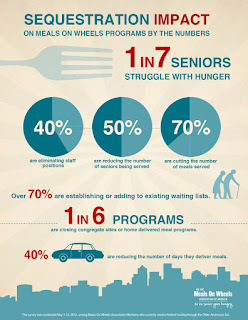Multnomah County and Aging Populations
The Growing Population of Seniors and the Programs That Support Them
In each community, the reality of aging members facing gaps in social services is severe and only getting worse as state and federal resources shrink. Multnomah County is no exception to this financial trend and the risk it poses to senior populations. The truth of the matter is that relying on state and federal resources for funding and support is always risky business.Many seniors are faced with the same challenges concentrating around finances, isolation, affordable housing, food scarcity, transportation needs, in-home services and elder abuse. These issues can increase in severity and become life threatening for seniors when they are also suffering from a range of health issues. Seniors are vulnerable and the risks that they face are reality for every county and community.
Here in Multnomah County, 11% percent of the population is older than sixty-four. Of that portion, 23% of the county's seniors with disabilities live in poverty. Projections show that the senior population is set to grow to 57% in the next ten years, outpacing the growth rate of the rest of Oregon and the United States!
The older Americans Act, a federal program, funds a portion of home delivered meals to seniors as well as transportation to medical appointments. Within Multnomah County, there are five district centers and several culturally specific partner organizations that provide services to seniors and disabled people.
One such service is Meals On Wheels which provides home delivered nutritious lunches direct to people's homes five days a week. Services like these not only provide much needed nutrition, but also help to address issues of isolation and risks associated with being isolated including being able to provide wellness checks to seniors when delivering meals. It's a crucial service to the community at large to have volunteers on the ground five days a week, helping to make sure people do not need medical attention or suffer for too long without getting the help that they may need.
Food insecurity exasperates health issues and becomes a major impact upon vulnerable populations, seniors included. A poor diet contributes to depression and according to studies, 60% of US seniors experience depression due to a lack of ability maintaining a healthy, nutritious diet. Not only do poor diets cause depression, it also puts lives at risk by increasing the probability of heart attacks and may even contribute to heart failure.
Transportation is also a rising need for seniors, especially low-income older adults and those that are disabled. In recent years, over twenty thousand requests for transportation in Multnomah County alone were turned down due to lack of funding. This need is only expected to increase, as much as 12% over the next four years. One can see the importance of services that provide home delivered meals. Supporting programs like Meals On Wheels in your community and volunteering helps to buffer the needs of the vulnerable and build a lasting healthy and thriving community that can be enjoyed through all stages of life.
Unfortunately, the current political climate is only becoming an increasing threat to these programs.
To see how you can get involved, visit the Meals On Wheels website:
https://www.mealsonwheelspeople.org/
And for more information concerning hunger issues in Oregon and the U.S:
https://www.oregonhunger.org/sites/default/files/Finding%20Food%20Security%20in%20Portland,%20Oregon_Final%20%282%29.pdf



Comments
Post a Comment